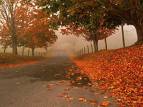A Kashmiri Muslim poet's devotional hymn to Goddess Tara
On a lazy
Sunday we were tuned into Radio Sharda(a community radio of Kashmiri
Pandits).Moti Lal Kemmu’s (a renowned scholar and an expert on Folk Theatre of
Kashmir) interview was being broadcast . The interview was interspersed with
requests of songs by Mr.Kemmu. He requested for Samad Mir’s poem “Praran praran
Tarawatiye”.It was sung by Ama Kandur in Chakri(Kashmiri folk music) style.
Though I had read many of Samad Mir’s poems I hadn’t heard of this one till then.
The poem
describes Goddess Tara, her iconography and her attributes. I have heard from
some people that Samad Mir’s Tarawati is a Kashmiri Pandit woman (who he might
have seen or known) which is erroneous as we will soon discover. While he has
contextualized the deity in Kashmiri environs yet the description is essentially
of the one who he describes as the “Goddess who emerged victorious in Bengal”.
Goddess Tara
(one of the Dash-Mahavidhyas) is primarily a Hindu Goddess who later manifests
in Buddhist iconography as well, but the Goddess described by our poet is the
one as she is described and worshipped in the Hindu pantheon. To be more precise
the description matches the idol of the Goddess at the shrine of Tarapitha (in
Bengal).The worship of Goddess Tara is not unknown to Kashmiris. Even today there
are atleast two villages in South Kashmir which owe its origin to this Goddess-
The village of Tarigom near Kulgam(which now has no traces of any temple) and
the village of Taragom near Qazigund(which has a living temple of considerable antiquity considering the stone
sculptures and a spring dedicated to the deity).
I attempt to
translate the poem.
Praran praaran tarawatiyay,aitay nazaar traav
Kharran poozaye jhafer phateye*,aitay nazaar traav
For long
have I sought thee, Reveal thy true self to me O! Tarawati,
Caskets of
marigolds will I entreat you with, Reveal thy true self to me
*The sculpture
of Goddess (at the Tarapitha Shrine) is adorned with garlands of marigold
flowers
Durdaane lab lal yim chey vatheye,khande seet maey vaseraav
Tim chey chamkaan aadam raateye,aitay nazaar trav
Your parted
pearl like lips, glowing red with human blood*
Deter me not
with that mirage (of external manifestation), Reveal thy true self to me
(* In
Mundmala Tantra,Goddess is described as consuming human as well as animal blood.
She is said to be fonder of human blood, which is always on her lips. This has
esoteric meaning and should not be fallaciously understood by its literal
meaning.)
Kamane abrunis alifiy khateye,zamaney maey katraav*
Yim Chasme siya chey aafatey, aitay nazaar trav
Eyebrows
like arrows on a bow, dark eyes symbolizing annihilation
With
scissors of spiritual transcendence, Reveal thy true self to me
(* The
goddess carries scissors in one of her hands with which she cuts the weed of
desire and propels her devotees on the path of transcendence)
Yim naeze acharvalav maey ditey,tim doptham vateraav
Bhi mare korthas che taem bharketey, aitay nazaar trav
Piercing, your
eyelashes, that as boon you bestowed (on me)
Freed me
from the bondage of death, Reveal thy true self to me
Aath dare paeth chakh shubaan latiye,paanas kareth paeraav
Kripaye aes aaye aavbhagatay, aitay nazaar trav
Resplendent,
in your beauty, Adorable, you sit by the window
We beseech your
divine grace, Reveal thy true self to me
Mahtaab royas kareth chaaye gateye,aftaab mandechith draav*
Sadaye vodunay prazlaan sitare phateye, aitay nazaar trav
Circumambulating
your moonlike radiant face, dwarfed and disgraced felt the sun
A galaxy
lies strewn on your tippet, Reveal thy true self to me
(*In
Buddhist iconography the Goddess sits in the orb of the moon with sun forming
the exterior orb. This verse could be a reference to that)
Daeke tike chyon di lach laal pateye,taakaene haej maey thaav
Zulfan Tal chay noorich bateye, aitay nazaar trav
Thy orb (ajna
chakra) is a million rubies,O hide it not(under your headgear)
Beneath the darkness (of your black hair)
shines gnosis, Reveal thy true self to me
Kad chyon shamshad Tan sheeshe dateye,seemab tatey mandechaav
Seene aayenay naare pistaan rateye*, aitay nazaar traav
Intense you
are, glowing brighter than mercury
Smeared with
blood, breasts shining (like fire), Reveal thy true self to me
*Since her
lips are open (as mentioned in the second verse-lab chey vatheye) blood keeps oozing out and after falling on her
breasts it resembles fire.
Tot aaye aashiq naendere hateye*,Kate chak te kya chuy naav
Sandere tyake chane chanderaymateye, aitay nazaar traav
Bereft of
sleep, your devotees seek (you), bewildered and mesmerized
In rapture,
by the grace of vermillion (on your forehead), Reveal thy true self to me
*The
opportune time to invoke the blessings of the Goddess is between midnight and
breaking of dawn, which explains why devotees are bereft of sleep (naendere hateye)
Yim Chah Afsoone Saaz aaye paatiye,Bengaale
zyunuth daav
Yim naeze kaem jodugaaran ditiye,
aitay nazaar traav
You
the embodiment of art, who reigns over Bengal
What
hath gave thy absolute wisdom, Reveal
thy true self to me
In
the concluding two verses the poet teaches us about the means with which one
can realize the Goddess
Saat paaev haer khas pateye
pateye,lagecth che daentuv khraav
Zoone dabe baethek nich
bhagwateye*, aitay nazaar traav
Rise
through the seven chakras of Kundlani, purified like ivory
Awakened,
you will realize the Goddess, Delve into thyself
*There
are seven ladders in awakening (Jagriti) of self. It is called the rise of
Kundalini.He/She who reaches the highest ladder(Sahasrar Chakra) is considered
the realized one and the one who sits (metaphorically) near his/her deity.
Yehlok manz kar kar
adityae,Parlok manz parkhaav
Nish Samad Miras haech zagratye,
aitay nazaar traav
Perfect
this art here, triumphant will you emerge there
From
Samad Mir, learn the art of awakening (the kundalini), Delve into thyself









No comments:
Post a Comment